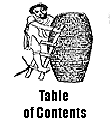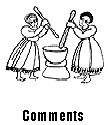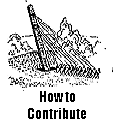
|
By Tizita He steps out of the taxi and pays the driver. The driver takes the money and does a quick bow - a handy combination of misgana and selamta. He smiles in appreciation of the small yet meaningful gesture, once again reminded of the reason he's at this house he's about to enter. The thought of these precious kids growing up to never fully understand and appreciate the depth of his yemayiTegeb bahil is crushing. How many bureaucratic meetings will it take? It doesn’t matter really - giving up is not an option. He bows his head in the same manner and turns to knock on the gate. He's a few minutes late, but not at all late by the standards here. Late is not considered late unless it's by more than a couple of hours. The concepts of time and qeTero makber seemed to have escaped his beloved people altogether. No amount of exposure to the modern world and the modern people could sink into an Ethiopian deep enough not to be shrugged off, at the very least agerachew simelisu - at least he has yet to meet those who've managed. He wonders how the foreign guests who frequent this house take that; are they all forewarned about the notorious lateness of the society and so they learn to accept it? Or do they expect all things to be done and all meeting to occur on time and then get upset when it doesn't happen? Is this a sign of a society forever unable to modernize? Can't be - our concept of time can't possibly be worse than that of Italy and Brazil and... . He is interrupted by the older man who opens the gate just slightly and peers at him with hesitation. "TenayisTiliN, gashE, Alemayehu neN." He knows why gashE is peering at him, gashE qeld ayawqum when it comes to protecting the children in that compound and won't let anyone in unless he personally knows them or they are escorted by one of the people who works there. Inside the house, a group of kids of all ages are standing near the long dining table eying a dish of keremEla that was sitting in the middle. Alemayehu breaks into a smile watching them from a distance. In less than a month, he has come to love each and every one of them as though they were his own. And his heart broke each time one left. Will he be lucky enough to accomplish what he's working on so they can all grow up without losing their etyoPiawinet? He sees them whispering to each other, no doubt about the candy, and laughing. He winks at one who looks over to see him, and the room is transformed into something that resembles a circus arena as they run to greet him and tug at his shirt. He has become their friend as well as their father, siasfelig iyeteqoTa, siasfelig iyaCHawete. He scoops one of them up and puts him on his shoulders. The little boy, no more than 3 years old, squeals with delight. Out of the corner of his eye, Alemayehu sees Zelalem and Tesfaye waiting patiently for him so they can talk about a few things before the rest of the group arrives. He teases the kids about keremEla being bad for their teeth and leaves them saq-besaq at the thought of all of them having no teeth at all after eating all that's on the table. Zelalem is somewhat shy but her face is always lit with a smile. Her eyes have a deeper, more-genuine-than-anything kind of a smile even when the rest of her face is sober. Perhaps that’s why the children respond to her so well. Alemayehu has known her almost all of her life and, even as a child, she had that strangely bright twinkle in her eyes. She is now married and has a 2 year old son, FiSum. Tesfaye, her husband, works at the University, which is where they had met and married while both were still students. They are not by any standard considered rich, but they are comfortable. Certainly, comfortable enough to add a couple of more children to their fiqir yemolaw family of three... could it ever happen though? Alemayhu and Zelalem had been neighbors and friends diro, lijoch honew, until his family moved to the U.S. some eons ago. And they hadn’t really kept in touch. When he came le’ireft about a month ago, he had run into her and her husband with their little boy, just outside of their houses and both had been surprised at the sight of the other. Their childhood friendship sparked, surprising and delighting them both. They had invited him to lunch and Zelalem, animated and full of enthusiasm, had told him about the place she worked at. He had noticed the unmistakable sadness in those sparkling eyes. It had puzzled him. The place where she worked had sounded like a piece of heaven doing the work of angles. There are two full time nurses, one teacher, two full time mogzitoch, one cook, one housekeeper to do such things as libs maTeb, bEt maSdat, …and a bunch of people doing the administrative work. And of course, gashE. A large house, sefa yale gibi, a good size salon and mebilbEt, a small biro, two full bathrooms, two extra large bedrooms (each accomplished by knocking down the walls between two good size rooms), another bedroom for the one live-in nurse and one mogzit to share, and a kitchen. Quite a modern facility, really. Zelalem was hired as a Translator/Secretary about a year after the place was in operation. She was always good with languages. As a child, she had picked up a good amount from her friends, and had taken advantage of every opportunity she got to study it formally. By the time she completed University, she could fluently speak, read and write, in addition to amariNa, tigriNa, and oromiNa, four other languages - English, German, Spanish, and Russian. Her language skills have come in handy in many situations that would have otherwise become desperately miscommunicated. Although Zelalem’s official position is a Translator/Secretary, she works various positions (by choice, really, not for lack of hired help) - mogzit, nurses’ aid, driver, cook - whatever the need of the moment was. A noble idea, a noble place - a shelter for infants and young children orphaned and/or abandoned, foster-home like in many ways, until suitable adoptive parents are found for the children. "fiqir new ymiasfeligachew lijochu" one of the sira askiahajoch told Alemayehu during one of his visits, "lav kale lEla minim chigir yelem." And quite obviously, the children are showered with love at this home, with every adult in the compound constantly dotting on them. They are fed well, dressed well, and not a single cough ever goes unchecked. It was a few days after she first told him about the place that Alemayehu had finally decided to ask Zelalem, "why the sadness over such a satisfying job?" He had thought it could be because she got too attached to the kids before they were adopted, but he felt there had to be more than that - Zelalem is too much of a "practical" mind to be saddened by something like that. "a’ay, minim aydelem," she had tried to brush it off. So far, the only person who understood her and shared her feelings on the subject was her husband. Her own best friend has told her to stop thinking crazy, "anchi demo, yelijochun idil atabelashi… yeNa sew kifu new, injeralij n'w yemiareguachew...." Another friend had told her, "...mTs, atimoNi bakish, ItyoPiawi lalweledew minim fiqir yelewim...." Finally though, she had to give in to Alemayehu's unabated curiosity and, hoping that seeing the situation would help explain what she so often failed to put into words, had invited him to her work the next weekend. And his visit that day had been the beginning of his qumneger yalew sira. His plans of ireft had been replaced with the hectic running around as he tried to prove to the unconvinceable, that modern we may not be, but our children are better off with us than they are with a ferenj parent... . That day, she had met him at the gate to introduce him to gashE and escort him in. His first impression of the place was just what he had expected. Clean, spacious, filled with happy, boisterous kids. It was a Saturday and Zelalem was playing the role of translator as well as mogzit. She had picked that day on purpose - none of the sira askiahajoch would be there which meant she was the senior sira askiahaj in charge for the day. Her eyes looked sober and her appearance professional. She introduced him to everyone in the compound as she gave him a tour and told him a little about each kid… Sehai and Melat, the 4year old identical twins who love to follow gashE around; Melaku, the baby whose worst moment of the day is bath time; Selam, the 6year old who loves climbing trees; Yobdar, the 4year old natural leader and Ketema, her 3year old brother who adores her; Sophia, the youngest baby there; Kokeb, the chubbiest and quietest baby; and so on and so on… And Alemayehu had fallen in love with each and every one of them that same day. And all of them, he had learned, would soon have a ferenj parent and a ferenj name, and soon enough all the ferenj mannerisms would replace this sweet and ageless culture.... "W/zo Zelalem," had come in Lemlem, one of the mogzits carrying a sleeping baby. "Nurse Marta lijitwan asketibew temelisewal," she had turned quickly Alemayehun iG lemensat and to say TenasTiliN, and then had continued talking to Zelalem, "b'sint s'at yihon ferenjua 'mitmeTaw litwesdat?" [L – help!!]Before Zelalem had a chance to reply, Mrs. Walter, ferenjua, had walked in along with Chris (Amaha used to be his name), her 6year old adopted son, and their guide and interpreter for their one week stay in Addis. Alemayehu had stayed behind while Zelalem quickly walked over to the berenda to greet them. From where he was standing, he could hear Mrs. Walter and Zelalem converse in two languages, Zelalem following Mrs. Walter's lead as the language is switched between English and German. Lemlem handed the baby to Zelalem and Zelalem dutifully to Mrs. Walter. Nurse Marta joined them with the latest medical records for the baby, all files were checked and goodbyes were said as Mrs. Walter left with those she came with, plus her new baby daughter. The baby's name was Mahlet, but wouldn’t be for long. Alemayehu had seen gashE wipe his tears unashamedly. "irso demo," had been Nurse Marta's reply, "izi qertew min indihonu new?" "mTs, indew kesew ager adgew, quanquachewinis, bahilachewinis, maan yastemirachewal?" gashE had made his point. "Amehan inquan atayeem - b'and amet wisT selamta inquan siaqitew?" "Mts," had echoed Lemlem, "Ameha - indih yale worq lij, ahun inatu, nefsuan yimarina, yaweTachiletin simun k'ris bilew qeyirew, mTs!" It was later that same day that Zelalem had explained the source of everyone’s anguish, when Alemayehu had seemed confused - he had assumed it would be a joyous occasion to find a family for a child, and was surprised to find it awkwardly gloomy. It turns out, according to the sira askiahajoch, our society has trouble modernizing not only in the "Time" department, but also in the "Love" department. Apparently, the modern ferenj love better than the ’hualaqer etyoPiawi. So at this modern place that does noble work, adoption of etyoPiawi lijoch b'etioPiawi bEteseb is not permitted. Slowly, gashE’s words sunk in. Zelalem and Tesfaye had tried time and again to adopt, and had been turned down, without hesitation, told that the children are better off with ferenj parents. Zelalem has seen countless etioPiawi couples being turned down for the same reason, including those related to the children. Today Alemayehu is meeting with all of the sira askiahajoch to yet again try and convince them that, yes, etyoPiawi yalweledewin indeliju mewded yichilal. His grandparents have done it, and even his father was an adopted child. If his father was alive, how he'd laugh at their face for thinking he was loved any less for having been adopted... . Yes, he knows a few who, given the opportunity, would take an unfortunate child home to have them slave the day away, but who says the modern ferenj ager is free of the likes of the evil step-mother? Determination sets as Alemayehu walks into the office at the corner of the living room. He turns one more time to watch the kids still giggling over the image of themselves toothless. How I wish for each and all of you to be loved by your own people... surely, nothing could be sweeter than hearing your mother saying to you, "... aizosh, yenE 'mebEt ..." He smiles and sits across from Zelalem and Tesfaye, the only two on his side in this group of discussants. Today's discussion is the meaning of the loss of one's culture. He closes his eyes momentarily - AbayE, thank you for never letting me turn my back on my culture in the name of modernity... deep breath - one step at a time... . |

|

|

|

|

|
| © Copyright SELEDA Ethiopia, July/August 2002. All Rights Reserved. |
